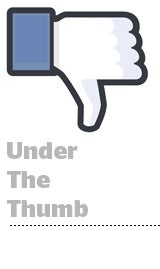 Facebook’s controversy over its decision to allow politicians (but only politicians) to promote lies in ads has led to Twitter saying it would forbid political ads and Scott Galloway, a prescient tech industry analyst, predicting Facebook would ban political ads by Thanksgiving.
Facebook’s controversy over its decision to allow politicians (but only politicians) to promote lies in ads has led to Twitter saying it would forbid political ads and Scott Galloway, a prescient tech industry analyst, predicting Facebook would ban political ads by Thanksgiving.
Yet, if such a ban materialized, Democrats would feel the brunt of it.
“If Facebook banned political ads, the first casualty would be Democrats’ list acquisition programs,” said Brian O’Grady, principal at Clarify Agency, a liberal advertising and fundraising shop.
The change would be “catastrophic” to digital fundraising programs, and Democrats in particular, said Keegan Goudiss, managing partner at the liberal agency Revolution Messaging.
“I am worried that an angry mob will push Facebook into blocking political ads,” he said.
The Trump campaign and Republican Party groups have been aggressive Facebook advertisers since 2016, but Democrats rely on huge lists of small-dollar donors to actually fund their campaigns, said Greg Berlin, co-founder and partner at the liberal agency Mothership Strategies.
“Republicans have giant donors they can rely on exponentially more so than Democrats,” Berlin said. “Digital fundraising and Facebook allowed us to have something like parity in so many races across the country.”
And it isn’t just fundraising. Democrats need to reach more minority communities and audiences that are mobile-only or less likely to own a TV and cable package, like Spanish-language speakers, Berlin said. This means without the main mobile platforms – Facebook and Google, if it too were to block political ads – Democrats would lose access to many potential voters. Republicans can find their targets more effectively in traditional outlets.
Some in the ad tech ecosystem could see it as an opportunity.
Since television is the main mass-reach media alternative, online video and CTV would stand to gain by Facebook defecting on politics, said Telaria head of research and insights Karen Ring. Those would-be budgets will be more likely to remain in data-driven, digital channels, instead of reverting back to linear TV, she said.
More paid media would shift from direct response fundraising to persuasion, with higher use of programmatic to replace Facebook video, said Grace Briscoe, Centro’s VP of candidates and causes.
And despite the disadvantage to the Democratic Party, its agencies’ will get more work if political advertisers can’t use Facebook.
“A lot of shops built their house on Facebook’s land, so to speak,” O’Grady said. “Targeting, deliverability, inventory availability all look really different outside of Facebook and it’s going to be a steep learning curve for some agencies and campaigns.”
The frustration from Democratic operatives on a potential Facebook ad ban also centers on the media and public misunderstanding of the dynamics that drove misinformation and electoral influence during the 2016 campaign.
The Russian influence campaign against Hillary Clinton relied mostly on organic promotion, such as networks of fake accounts that would elevate content without paid media.
YouTube’s ad policies aren’t driving misinformation, Berlin said. That comes mostly from algorithmically selected autoplay videos that send users down right-wing propaganda rabbit holes.
Conservative news and causes also use shady organic tactics on Facebook. The Daily Wire, a conservative news site that’s one of the most popular publishers on Facebook, operates a network of booster accounts that the social network allows despite mimicking the “inauthentic coordinated behavior” of electoral influence campaigns, as detailed by Popular Information, the newsletter by reporter Judd Legum.
“These platforms are trying to solve a problem that doesn’t exist,” Goudiss said. “As long as people know what messages are sponsored and who is paying for them the issue will continue to be organic shenanigans.”














